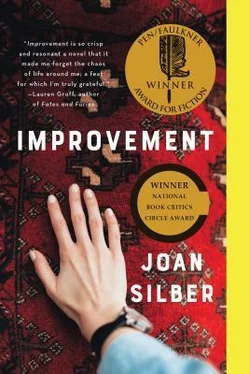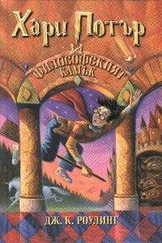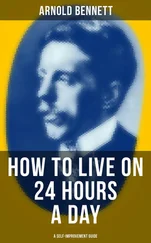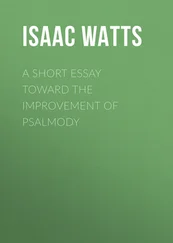Their hot and good-natured romance lasted much longer than she expected, from late winter until the end of the next summer. At night, before they fell asleep, she liked to murmur, “ S’pas ,” into his ear, which meant “thank you” and was the one word he’d taught her in Kurmancî, his dialect of Kurdish. In elementary school he’d been punished for not speaking Turkish. How he’d gotten himself to Istanbul was a long story with so many bypaths she could never follow all of it. He was quite something, she thought.
She always knew she would have to leave, though later she believed he was, if you counted things a certain way, one of the great passions of her life. Still, there was a wife somewhere outside Diyarbakır, a fact he’d slipped into a sentence early on. Kiki pictured her as lumpish and naive but had never asked. It wasn’t a good situation, was it? Emir was heartbroken when Kiki left but maybe he was relieved. And he never would sell her back the Sivas carpet, though in the end he loaded her up with newer, cheaper rugs, her dowry for the next stage of her life.
And Pat had been there all this time. She’d had her kids, with and without a husband, and she used to write Kiki tart, sarcastic letters about how divorce with two preteens in the house was not as glorious as you might think. (Letters on blue tissue-thin airmail paper, weeks in arriving—what century was that?)
At least Pat still came back to America. Every summer they had their two weeks together at the beach, a custom that had begun when Pat’s children were small and needed entertaining. Kiki loved those weeks, the rented cottage with its sagging porch, the long talks by the dunes. What if her ties with Pat hadn’t held? Would Turkey have blurred in her mind, gone the way of outdated clothes that looked baffling later, stories whose points were lost?
And now Osman was writing to her. By his own account Osman lived now in a better neighborhood than he ever had, on the leafy outskirts of Istanbul, in a house he said looked like a giant sugar cube. Kiki supposed she was glad he’d done better in the rug business the second time around. He had a son with this wife, a boy who now did something with computers.
Reyna had asked her more than once about money in the marriage, what did they live on? What indeed. A mystery compared to nowadays. Reyna looked upon her aunt as a creature of great hardiness, and Kiki was happy to convey some message about pulling up your socks.
Kiki did tell her stories of how she used to ride a donkey off into the woods to gather kindling, piling the branches before her on its neck. In fact she’d done this just once on a neighbor’s donkey, which she hadn’t really known how to steer; both families laughed themselves silly.
Let Reyna have that picture of her, her aunt getting herself around by whatever means were at hand, on a braying beastie in the hinterlands. She hadn’t fallen off; that was the main thing.
The donkey ride must’ve been in early winter, when they were stocking up on wood. In winter Kiki had time to read, though it was hard to get books. She could remember trying to explain to Ayşe the plot of a novel—was it Jane Eyre ?—and how the character had had to decide her fate. She could tell this deciding business made no sense to Ayşe (who got to do that?). And later it was Ayşe who had been the most confused and resentful when Kiki left.
Did Kiki always brag too much about the farm? On Pat’s visits in the summertime, when they drove to popular farm stands on the Cape, Kiki was always speaking poorly of the local produce, spurning it forever for not being Turkish. She claimed—and she was almost sure this was true—that the peaches they grew in Cappadocia ripened to a color almost reddish. “They’re still better in Turkey, aren’t they?” Kiki said. “The vegetables and all the fresh things?”
“Of course,” Pat would say. “But don’t get sentimental.”
Was that a danger?
Even in Turkey she hadn’t cried, except at the very end, when Emir was helping to carry her silly assortment of baggage through the airport.
Emir had said, in his steady voice, “You will be fine wherever you go.” In the midst of her tears she laughed when he intoned this—it had no way to be true, it was more of a farewell prayer—but she was so happy hearing him say it she came close to not leaving. She didn’t have to go. But she went.
Once she was back in New York, she needed cash, and she sold as many of his rugs as she could, as soon as she could, keeping just two for herself. One of these she later gave to her niece, when Reyna had a decent place of her own. A Kula carpet, very intricate and beautiful, a golden ground with blue and cream and brown. It vastly improved Reyna’s living room. Nomads—Kiki had to tell her—had once invented these tough carpets (Oliver could spill stuff on it) to carry from one seasonal dwelling to another, to warm the hard ground for sleeping and give any tent the mark of home.
When Dieter and Bruno and Steffi left the farmhouse on the edge of Cappadocia, they were all getting along well, for a change. Dieter was doing the driving, and despite the glare of the noonday sun bouncing off the windshield, he was in an excellent mood. They’d been dealing with Turks for two months, but they didn’t often get inside their houses. How amazing that rough hearth had been, with its blocks of stone and its pit of ash. Dieter felt he would remember that after he forgot everything else. “That was the real Turkey, right there,” Bruno said. Dieter was still amazed by the American girl, keeping house with that granny in the middle of nowhere. If they’d stayed longer, he could’ve gotten her to come with them. He was sure of it.
“Could you be more conceited?” Steffi said.
“She has a husband, this Kiki,” Bruno said. “Some people want to stay married forever.”
Bruno was unlikely to be such a person—he cheated on anyone he was with, including Steffi, who’d had to wait two days when he disappeared in Istanbul with a very pretty underage Italian. Steffi was not necessarily the patient type either. Lately she’d been giving Dieter the eye. The American girl was lucky she wasn’t walking into this.
The drive to Ankara took the rest of the afternoon. Steffi was eager to get near the archaeological digs in that part of Turkey. “You know those workers walk off with bits of loot fresh from the digs,” Steffi said. “Everybody wants a few extra lire. They’re waiting for us.”
Steffi was the best bargainer of them all. She could start so low the seller gasped in shock, she could tease and flirt and get huffy and walk away. Much handshaking and fellowship at the end. The real joy of the trip for her was in those moments. Her face was hardly ever like that, shining.
They got into Ankara a little late for any bargaining in shops. Still, they tried. Near what seemed to be a market square, they went into any stores they found that had old brass bowls in the window or dusty prayer beads. Anything older in the back? No one said yes. No one knew anyone else who might help. Shrugs and headshakes. Bruno’s jokes were not getting laughs. A lot of people spoke nothing but Turkish. Maybe you needed names here, maybe you had to know someone.
Too bad they didn’t have the American girl with them. She could have figured out what was going on. She could have asked the right questions, with her fast Turkish and her knowing eyes.
The three of them stayed overnight in a faded but endearing hotel near the citadel, with nice old furniture and erratic plumbing. All through dinner, at a café nearby, Dieter was watching to see if Kiki was coming. At least two women on the street could’ve been her but weren’t. He knew it was unlikely she’d get to Ankara so soon, if she decided to come at all, but he was waiting, nonetheless. Steffi said, “Why are you so out of it tonight?”
Читать дальше












